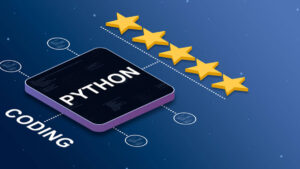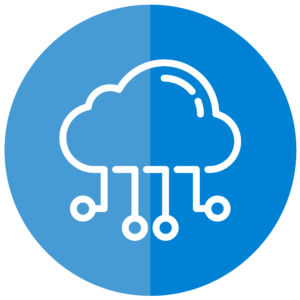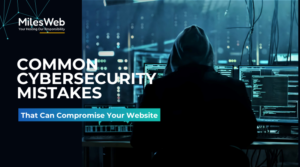An enterprising young woman in Nairobi, Kenya is having a rough time opening a digital bank account for her startup amid peak traffic. True to business though with all the necessary docs, and growing client base but with every passing delay Why? Identity verification in Africa still has a ways to go, for millions of Africans are not able to participate in financial systems because we do not identify a person in a formally documented way. But the tide of new tech is altering everything. A pivotal innovation in the battle for Decentralized identity Africa is addressing a fundamental problem — the struggle for ID verification and management across borders securely, and efficiently, which has plagued few parts of the world like never before.
What is Decentralized Identity & Why it Matters in Africa
Decentralized identity Africa really is about people owning their personal data at the core of it. Instead of relying on a third-party like the government or a bank, people create and manage their identities on blockchain development platforms that are anonymous but secure, permanent, and cross-border. These digital identities are not only sovereign but transactable, these really work across services so the same person can go to healthcare as opposed to a bank and then within the health care ecosystem banking and education … just to name a few! This transition is not merely welcomed, but sorely needed on a continent of more than 500 million people who do not have somebody serious to call their official name.
Shift with Blockchain identity solutions Africa
Identity management in Africa for years has been tedious, predatory and such. Legacy paper systems are lost, fraudulently tampered with and inaccessible — effectively excluding citizens from any real recourse to exploit financial regulations such as Know Your Customer (KYC) on behalf of businesses. Fragmented databases and non-interoperable systems means that most people with an ID in multiple forms often find that it’s usable from only one platform. Such a broken system inhibits economic development, denies people access to basic services and accentuates the divide. Blockchain identity solutions Africa reinventing the dawn of transparency, reliability and inclusion
FinTech / KYC – Disrupting KYC in Africa with De-Centralization
One extremely attractive example of decentralised identity, particularly for KYC / anti-money laundering solutions in Africa. Banks, Fintechs and the Mobile money platforms have been fighting expensive and laborious verification processes for a long time. By making use of blockchain-based digital identity systems, KYC is optimized as users are able to submit a single verified identity that can be used across services. This cuts down onboarding costs for institutions and gives a voice to users to not have digital cocoons. Take Amina getting her bank account opened in minutes rather than weeks, if only a trusted digital identity could be stored on a distributed ledger.
The Human Impact: Stories of Inclusion & Empowerment
The story of rural Ghana/Ethiopia or anywhere in the developing world where villagers cannot prove their age, citizenship, or qualification is one with which we are all too familiar. Healthcare and education, along with government support stay out of reach for the uncredentialed. This can be accomplished in Africa’s public services, when attractive things such as blockchain Digital identity verification Africa. E.g., birth certificates, academic records and vaccine histories can be stored and verified digitally even though no physical document exists. Mobile clinics, educational institutions and employers get quick information verified by the recurrent instantaneous verification of public service delivery, so as to ensure that the provision of public services is effective and inclusive.
Decentralized Id Verification for African Public Services
The decentralised identity is well correlated with the rapid mobile adoptions in Africa and the boom of Emerging tech in Africa across the continent thus making it potentially better suited for Decentralized identity Africa. Almost 75% of the population in this fast growing continent now own a mobile phone. Digital leapfrogging provides the necessary infrastructure to roll out decentralized identity tools through mobile apps, lowering the reliance upon existing infrastructure The open-source tools and environment for blockchain development also help developers to develop localized solutions—off-the-grid solutions that work in parallel with existing mobile money platforms for multiple languages.
Emerging tech in Africa — Mobile-First Identity Systems going vulnerable in Africa
These changes are not just tech-driven, they are deeply human. Think about Ugandan refugees in a UN camp. You are stateless, have no name and have no ID, so this person is not eligible for food, school for their children or basic healthcare. By connecting Africa’s identification poor with a blockchain-powered Digital identity Africa solution the agency that Africans deserve —one which grants them not only a name but rights, dignity and opportunity. This is no longer about identification, it’s about enablement.
This is starting to change with governments and enterprises finding the value. Blockchain-based identity programmes by the National Identity Management Commission (NIC) of Nigeria For example, Kenya and South Africa are trying to use Blockchain identity solutions Africa to fight fraud, improve service delivery. In Zimbabwe, for instance, Zimbabwean startup FlexID is leading number one in the area of Digital identity Africa and Wala in Uganda to name a few digital identity Africa; initiatives that are focused only on the challenges that this particular continent harbours. They are not for sale—they are the match to set off systemic fire.
From Sprawling Systems to a Unified Layer of Trust
But the challenges persist. Decentralized identity is great for KYC solutions Africa to scale community-wide interoperability For decentralized solutions implemented within KYC solutions Africa you need standards. The policy should be created, and systems need to be designed to work with existing government and commercial infrastructure. Self-sovereign ID models require that data privacy laws change. Citizen Digital Literacy and public awareness are also key. We have to show citizens how and when to use their digital identities and protect it, otherwise this might be misused. With that we need coproduction as a partnership between governments, private techs, NGOs and educational institutions.
The Block Chain Development and Its place in the Digital Future of Africa
However, the opportunity is huge. Decentralized identity for businesses, takes benefits in the form of quick customer acquisition, decreased compliance costs and less fraud-related losses. It will give governments the most accurate counts of people and welfare distribution to its citizens in a more transparent way. For the individuals, it allows access now materialized before it was possible — banking, health care and education equity and voting among them.
eTraverse Integrates Identity Management in Africa
eTraverse Africa inc is on the right path to embed decentralized identity in actual use cases — be it health access in the rural hinterlands or financial inclusion in city centers. By reflecting that data comes to individuals, users decide who can view their details and get a more secure, more reclusive digital identity. Implementation of a tailor made KYC solutions Africa, scalable architecture and local partners to solve digital divide.
Conclusion: A Call to Action for a Digitally Inclusive Africa
In the coming years, the lines between identity, trust, and access will blur. The question will no longer be whether someone holds a government-issued ID, but whether their digital self can prove who they are—anywhere, anytime, securely. Digital identity verification Africa will become the cornerstone of financial inclusion, healthcare reform, and educational opportunity.
Contact Us Today













